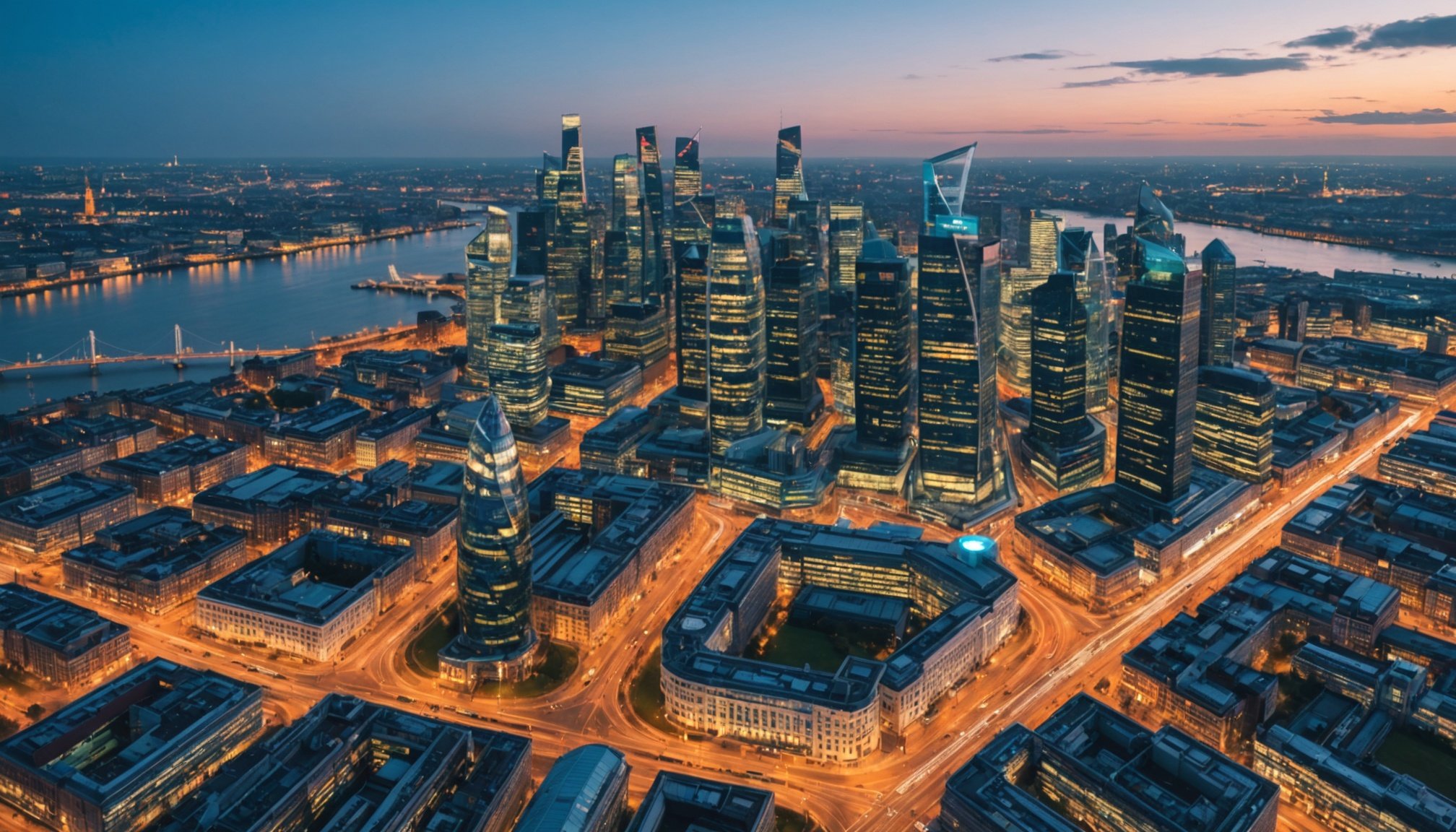Understanding IoT in Smart Cities
The Internet of Things (IoT) plays a transformative role in shaping modern smart cities. At its core, IoT refers to the network of interconnected devices that communicate and exchange data to enhance urban living. This technological ecosystem is pivotal in driving efficient urban development by enabling cities to manage their resources intelligently.
IoT’s integration into smart city initiatives brings numerous benefits. By harnessing data from sensors and smart devices, municipalities can optimise public services, from traffic management to energy distribution. This real-time data collection allows for a responsive infrastructure that adjusts to the ever-changing needs of urban environments.
Topic to read : How can uk businesses stay ahead in data privacy compliance with emerging regulations?
Multiple IoT technologies are applied across various sectors in cities. For instance, smart grids facilitate sustainable energy management, while connected traffic systems reduce congestion and improve transit efficiency. Additionally, IoT-enabled environmental sensors monitor air quality and weather patterns to help cities plan and respond proactively.
In essence, the IoT framework is not merely about connectivity; it’s about creating a cohesive information exchange system that drives urban development and optimises city operations. Its impact is seen in the data-driven decisions municipalities make, aiming to create more sustainable and livable urban spaces.
This might interest you : How digital transformation is revolutionizing traditional uk industries: exploring its impact and importance
Case Studies of IoT Implementation in UK Smart Cities
Exploring UK smart cities, you encounter a range of inspiring examples of IoT applications. These case studies demonstrate real-world examples of how the Internet of Things transforms urban spaces, offering insights into enhanced efficiency, sustainability, and innovation.
Case Study: London
London, a leader in IoT applications, harnesses an advanced network of sensors and gadgets. The city has deployed smart lighting, which adjusts based on pedestrian and vehicle activity, cutting energy usage. London’s extensive transport system benefits from IoT as real-time data provides insights, leading to smoother traffic flows and improved public transportation times.
Case Study: Bristol
Bristol’s innovative endeavors are evident in its IoT applications. The city focuses on air quality improvement using connected environmental sensors spread throughout urban zones. These sensors deliver data to city planners, aiding regulatory measures. Initiatives like these make Bristol a standout in utilising IoT for public health.
Case Study: Manchester
In Manchester, IoT applications are at the forefront of urban development. The city’s commitment to resilience includes systems that continuously monitor water management and weather patterns. This technology helps mitigate flood risks, ensuring a safer city environment. Each project showcases an appetite for innovation and a commitment to harness IoT applications for better living conditions.
Benefits of IoT in Urban Environments
The advantages of IoT in urban settings are vast and transformative. One of the foremost benefits is the improved resource management. By employing IoT technologies, cities can significantly enhance sustainability. Smart grids, for instance, optimise energy consumption by adjusting usage based on real-time demand and supply data.
Furthermore, IoT greatly enhances public services and boosts citizen engagement. Traffic systems equipped with IoT devices can reduce congestion through adaptive traffic light controls, leading to smoother commutes. Additionally, waste management becomes more efficient with smart bins that signal when they’re full. This ensures timely collection services, improving urban cleanliness.
On the economic front, IoT fosters both growth and innovation. Start-ups and larger tech firms are drawn to smart cities, driving job creation and innovation. The continuous data flow provided by IoT solutions offers unique insights, allowing businesses and municipalities to develop more effective strategies.
Ultimately, the advantages of IoT extend beyond convenience. They contribute significantly to enhancing city living by creating more efficient, sustainable, and economically vibrant urban areas. This integration is central to making cities more livable and appealing to both residents and businesses alike.
Challenges in Integrating IoT in Smart Cities
Integrating the Internet of Things (IoT) into smart cities is not without its challenges. One pressing concern is data privacy and security. As devices increase in number, safeguarding sensitive information becomes critical. Unauthorized access to data can jeopardize individual privacy and compromise city operations. Ensuring robust security protocols is essential for successful implementation.
Interoperability of systems and devices presents another challenge. Various IoT devices must communicate seamlessly within the urban ecosystem. Without standardization, cities may face compatibility issues, hindering the efficiency of smart city initiatives. Interoperability ensures coherent data exchange and optimizes device performance.
Additionally, funding and investment are significant obstacles. Implementing IoT technologies requires substantial financial resources. Cities must secure investment to fund infrastructure, devices, and maintenance, often competing with other urgent urban needs. Proactive financial planning and public-private partnerships can help mitigate these hurdles.
Addressing these challenges is essential to realizing the complete potential of IoT in urban development. Through strategic planning and cooperation, cities can overcome these obstacles, fostering an IoT-integrated environment that enhances living conditions while ensuring data security and operational efficiency.
Future Trends of IoT in Smart Cities in the UK
The future of IoT holds immense promise for UK smart cities. As technology evolves, predictions suggest significant advancements in IoT that will reshape urban planning. Emerging technologies like artificial intelligence (AI) and machine learning (ML) are poised to play pivotal roles in smart city development. These technologies will enable more autonomous and adaptive systems within urban settings.
Machine learning will enhance urban management by providing predictive analytics, assisting in everything from traffic predictions to energy consumption adjustments. AI systems could facilitate more intelligent public service deliveries, dynamically responding to city demands. This evolution toward autonomous technologies will usher in an era of smarter decision-making processes, enhancing urban efficiency.
Regulatory changes may impact IoT usage. New policies will likely address privacy concerns and standardize IoT devices, ensuring secure data management and fostering interoperability between different systems. These regulations aim to balance innovation with protection, promoting a sustainable and secure technological environment for cities.
As IoT developments unfold, the UK’s urban environments are set to become more interconnected and responsive, paving the way for a future where technology seamlessly integrates into daily city life, and urban development thrives.

